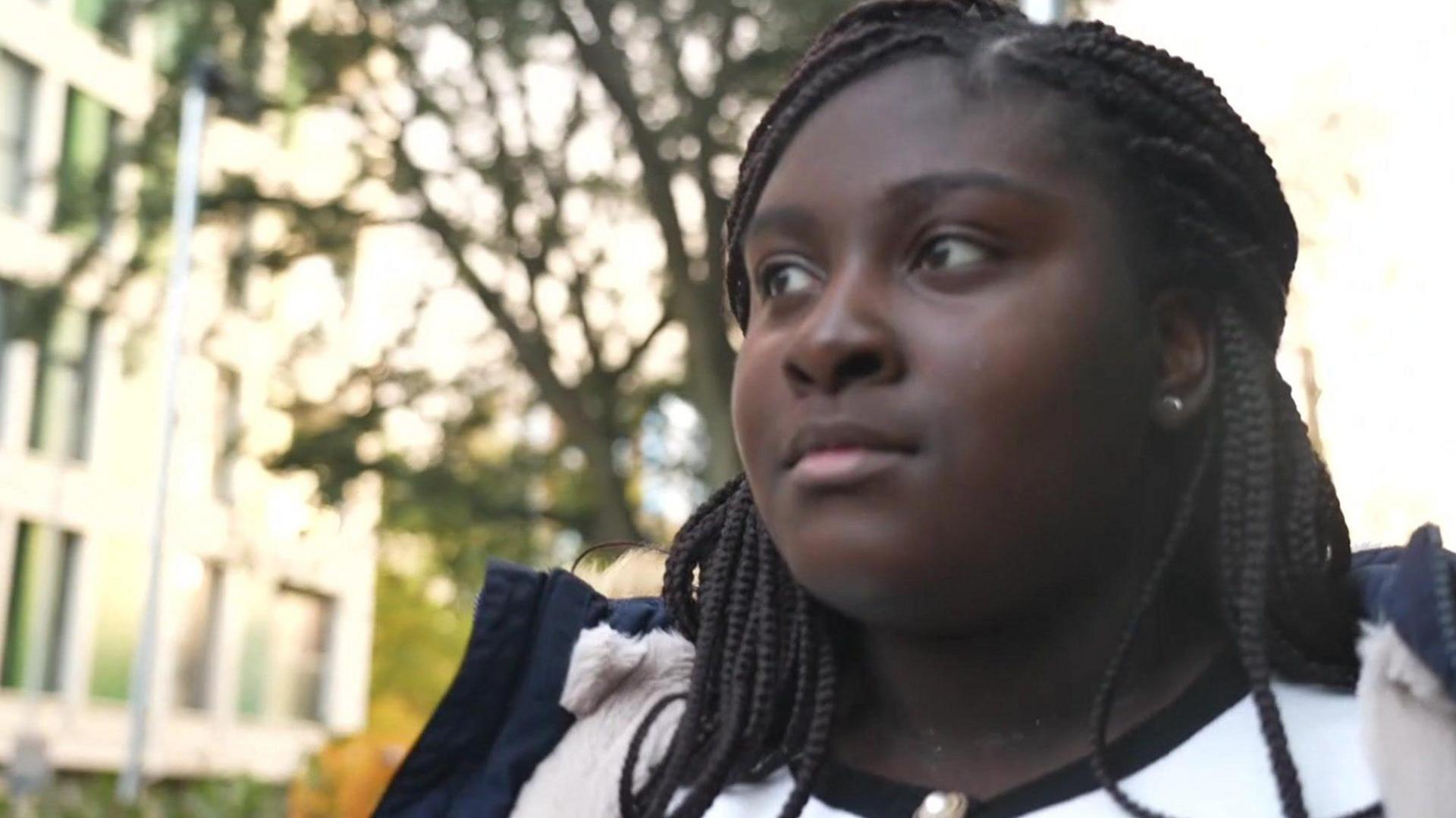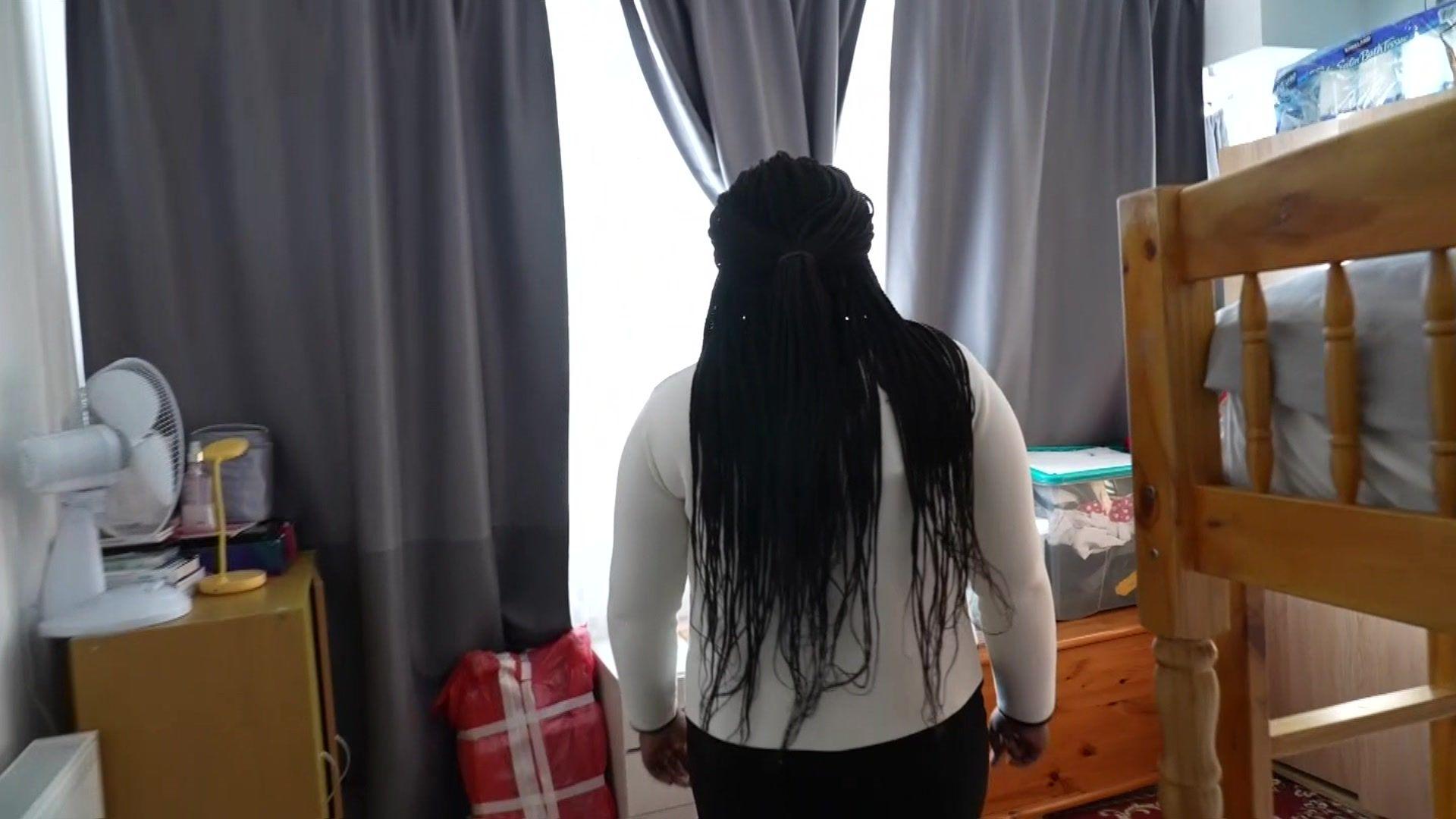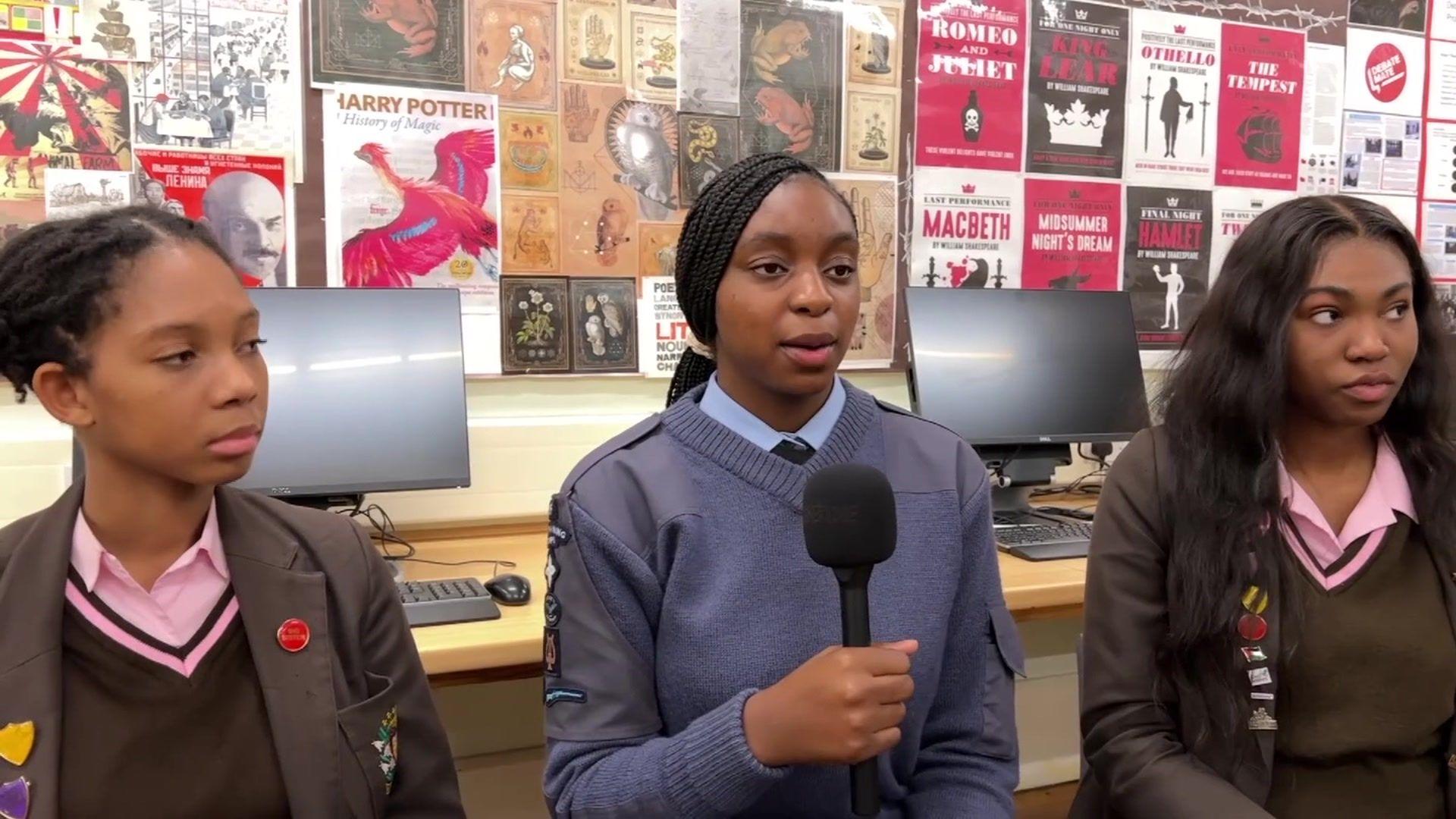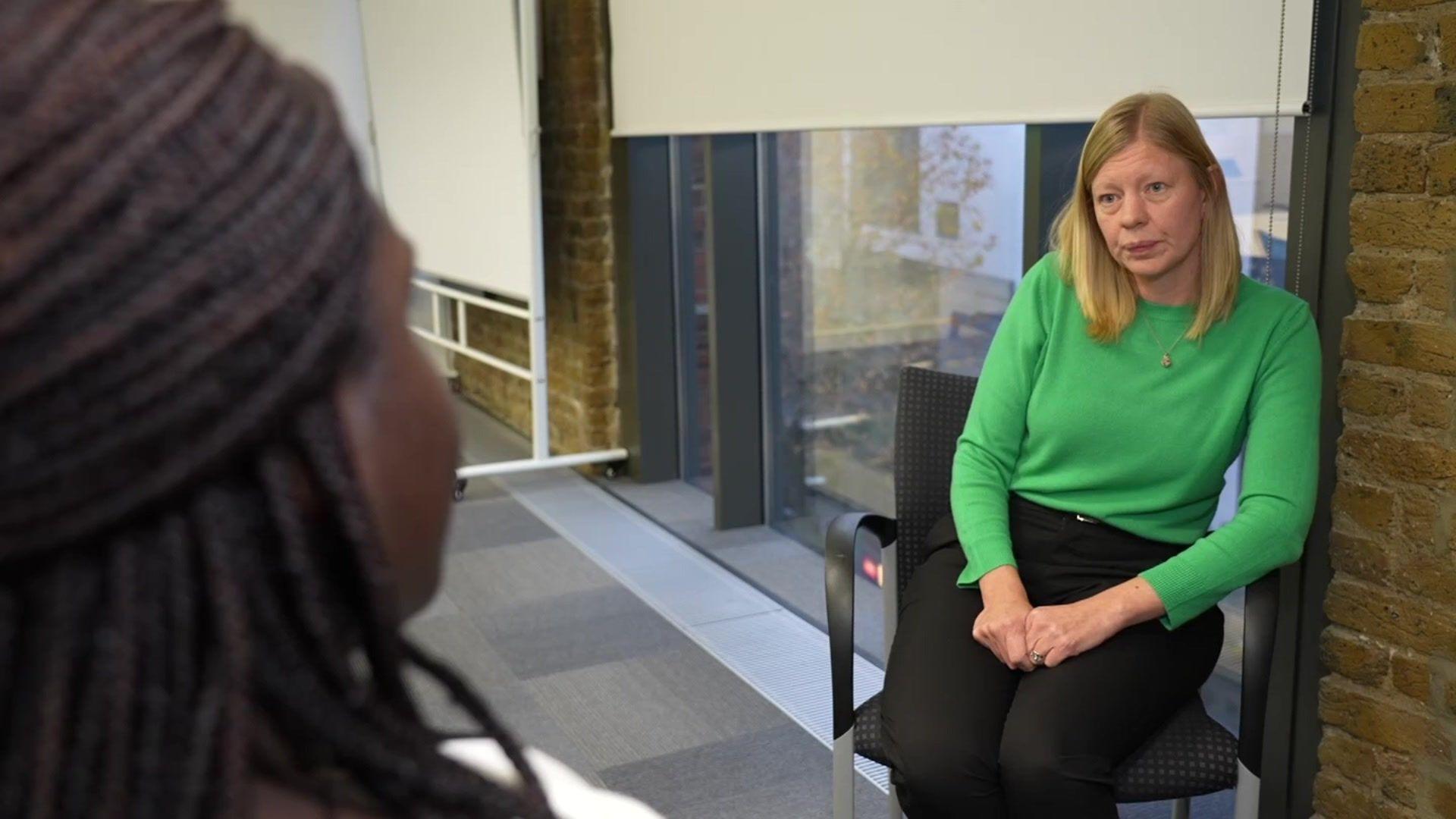'A lot of kids are living in overcrowded houses'

Angelica and her friends have been challenging the council on overcrowded housing
- Published
BBC Young Reporter Angelica feels strongly strongly about the issue of housing overcrowding and the impact it has on children in the borough and across the capital. According to recent government data 11% of all households in London are overcrowded. Here, Angelica shares her situation and challenges her local council on what it is doing to solve the issue.
I am 16, and my younger brother is 14 and sharing a room with him can be challenging sometimes.
We sleep on different beds, which helps, but share the same wardrobe and bedroom space.
Sometimes I feel suffocated because the room is so small.
The problem is not having enough space can also lead to struggles with school, health and with family relationships because everybody can get on each other's nerves sometimes.

Here is the bedroom that I share with my younger brother
A lot of children are living in overcrowded houses.
My secondary school worked with Citizens UK and one of the many things we did was a project to tackle the housing problem.
I met up with my fellow classmates Chioma, 16, Sarah, 15, and Grace, 15, who were also part of the project, to discuss more about it.
"We have a club called South London citizens, and we were discussing a new goal or topic to tackle this year, and the topic of housing came up.
"Straight away it struck a nerve with many people," explained Chioma.
Sarah has been affected by housing issues in the past.
She said: "I personally have experienced bad housing repairs and flooding and it is the reason why I have this passion."
These experiences motivated her to help make a change.
"The reason why I wanted to do this is because I wanted to stand up, I wanted to talk about what my problems were and I also wanted to represent the other people in my community."
We also spoke about what solutions we wanted to see.
"We wanted our council to care about us, we wanted our council to hear us; our situations, our problems," added Grace.
"We wanted repairs to be easy and quick, and we wanted them to be effective."

(L-R) Sarah, Chioma and Grace, feel passionate about overcrowding and housing problems
The result of the project was positive.
We managed to get a few commitments from the council, such as shorter phone call waiting times.
This meant that, if the council were called, it had to respond within five minutes.
I'm glad my friends and I have been able to make some tangible change.
However, overcrowding is still a big issue we face today.
'We know that it happens'

Helen Davis is the cabinet member for New Homes & Sustainable Development at Southwark Council
The council has made some efforts to help but I feel as though it could be doing more.
So, I went to meet Southwark councillor Helen Dennis, and asked her why the council allows children of different sexes over the age of 10 to share the same room.
Ms Dennis says the council is aware of the ongoing problem and "knows that it does happen".
Acknowledging the issue was a start.
She then outlined what the council’s objectives were.
She said: "What we're trying to do, and what we have to do, is prioritise on the basis of needs."
The councillor explained that Southwark is the "biggest council landlord in London, with 40% of people living in social housing".
As a result, the availability of larger homes is scarce due to the vast number of families in need of those properties.
"The larger properties [three bedrooms and four bedrooms] are really few and far between, which means there is a huge amount of competition for those properties," she added.
"That is why we are trying to focus on building more family-sized homes."
The purpose of this report is to raise awareness about the situation that affects many families across the capital, as well as my own.
Through the help of spreading awareness, I hope that solutions can now be found to tackle the housing and overcrowding dilemma.
I'm not saying they need to be done quickly, but much more needs to be done, at some point.
The sooner, the better.
Listen to the best of BBC Radio London on Sounds and follow BBC London on Facebook, external, X, external and Instagram, external. Send your story ideas to hello.bbclondon@bbc.co.uk, external
- Published31 October 2023

- Published19 December 2022

- Published20 June 2023
